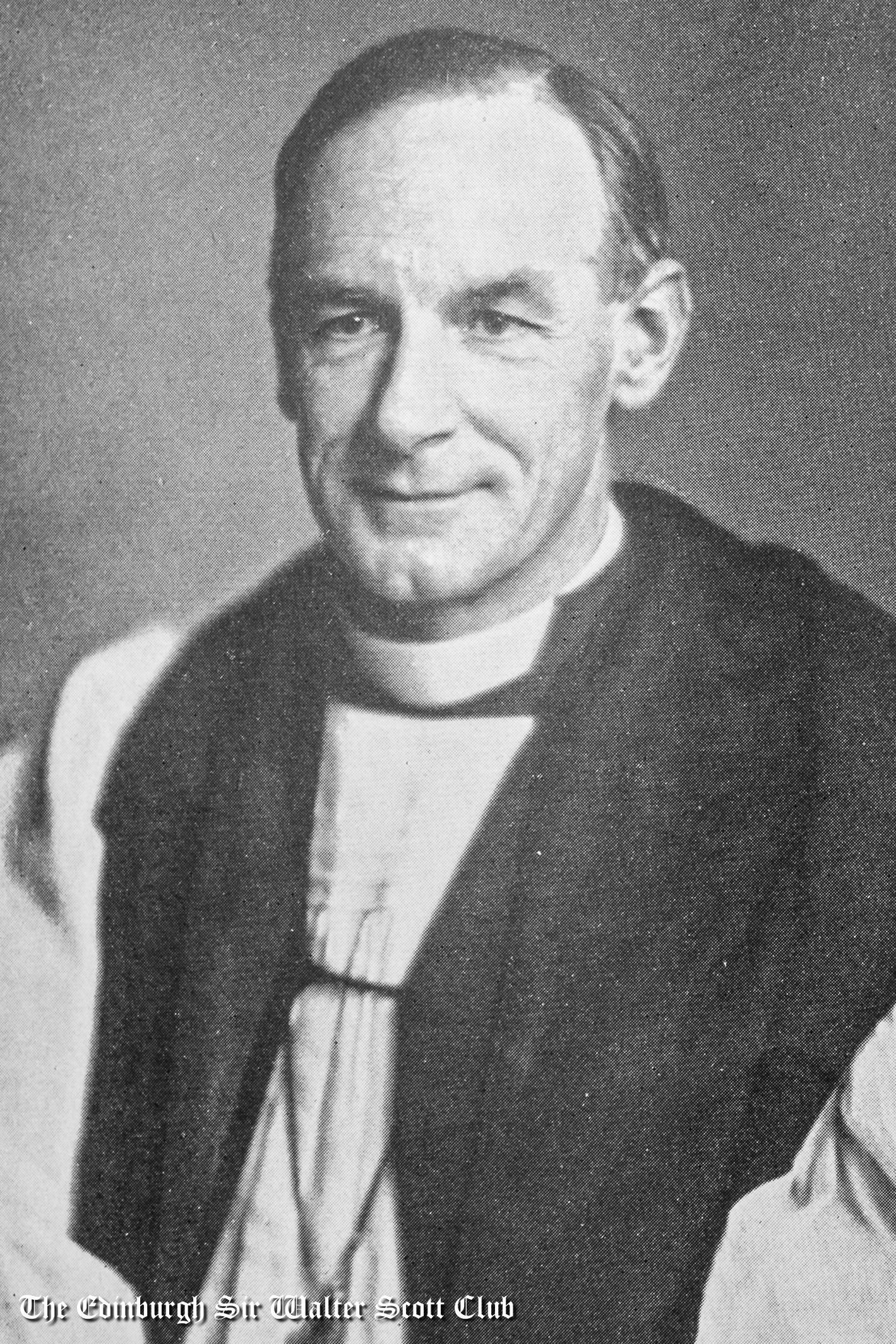1949
Our President in 1949/50 was:
The Right Rev. The Lord Bishop of Lincoln, D.D
He proposed the Toast to Sir Walter at our 42nd Annual Dinner on Friday 7th January 1950 in The North British Station Hotel
Download the [transcript] or read the [bulletin]
Summary of the Speech:
Harland begins by expressing humility and gratitude for being named President of the Club, and acknowledges the difficulty of honouring Sir Walter Scott in a manner worthy of his greatness.
He draws a parallel between the post-Napoleonic era and the post-WWII world, noting that Scott provided vital inspiration and hope in similarly troubled times. Scott’s genius, he argues, lies in his ability to restore faith in humanity, especially through his portrayals of ordinary people — the poor, the humble, and the morally courageous.
He praises John Buchan’s biography of Scott and quotes it approvingly, especially Buchan’s view that Scott’s novels reveal the "forgotten graces" of human nature.
Harland reminisces about his own childhood introduction to Scott’s work through The Lady of the Lake, quoting the poem at length. He describes Scott’s deep connection to Scottish landscape, lore, and identity, as well as his unmatched ability to move between tragedy and beauty — such as the haunting trial of Constance in Marmion.
He reflects on Scott’s personal life, including his early love for Willimina Stuart and his marriage to Charlotte Carpenter, noting how these experiences found fictional expression.
Scott’s shift to writing novels (Waverley onwards) is discussed as a major turning point in literature, giving him broader scope beyond poetry. Harland emphasises Scott’s humane insight, wide knowledge, and sympathetic imagination, arguing that his works have enduring value.
He warns that Scott is not as widely read by younger generations, who favour speed and cynicism, but insists that Scott’s work offers timeless rest, joy, and inspiration.
Harland highlights The Heart of Midlothian as Scott’s greatest novel — especially the moral heroism of Jeanie Deans, who refuses to lie in court to save her sister. Harland narrates her journey and appeal to the Queen, praising Scott’s moral clarity and depiction of honour, fidelity, and courage.
He ends with a reflection on Scott’s own faith and resilience, quoting Dr Hensley Henson’s view that Scott’s life and works embody the highest form of character — one proven by adversity.
Noteworthy Highlights
- Historical Parallels: Harland compellingly links Scott’s era with the post-WWII moment, suggesting Scott’s works are needed again for hope and moral clarity.
- Praise for Ordinary Virtue: He elevates Scott’s portrayals of the poor, humble, and morally steadfast — especially Jeanie Deans and Edie Ochiltree — over kings and generals.
- Emotional Resonance: Harland’s personal anecdotes (his father reading The Lady of the Lake, the solace found in Scott post-war) are deeply moving.
- Quotes and Recitation: The speech is rich in quotations, including long poetic passages that show reverence and engagement with Scott’s actual words.
- Critique of Modern Trends: Harland expresses concern that modern literature is too psychological and agenda-driven, urging a return to Scott’s broader human vision.
Download the [transcript] or read the [bulletin]

Subsidiary Toasts*
The toasts of "The King" and "The Royal Family" were duly honoured.
Thereafter Sheriff Maconochie proposed the toast of "The Imperial Forces," to which Vice-Admiral Sir Ernest Archer, K.C.B., C.B.E., replied.
"The City of Edinburgh" was proposed by Sir Edward Appleton, G.B.E., K.C.B., F.R.S., and replied to by Bailie J. B. Stewart Lamb on behalf of the Lord Provost.
The health of the Chairman was proposed by the Very Rev. Professor John Baillie, D.D., D.Litt.
*It is regretted that it has proved impracticable to reproduce the speeches other than that of the Chairman.


